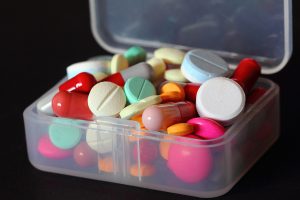Are you tending to your ever-growing spring cleaning checklist? If you don’t have “clean out the medicine cabinet” as one of your ToDos, add it today and don’t forget these important reminders:
Dispose of Old Medicine
Unused prescriptions, expired over-the-counter drugs, empty boxes, and bottles . . . it’s easy for a medicine cabinet to become cluttered over the year with superfluous items. Take some time this spring to clear it out and safely dispose of the medicine you no longer use.
- Check expiration dates and recycle old medicine boxes and bottles (remove prescription labels before you toss them or mark out private information)Follow instructions for disposing of medicine or check with your local pharmacy or law enforcement agency about upcoming drug take-back events
Simplify your daily medicine schedule by sorting pills into color-coded pill organizers with day of the week and time of day compartments
Upgrade Home Health Items
As you get older, is your doctor recommending you check health metrics at home more regularly like blood pressure, temperature, or blood sugar? Having handy, reliable home health tools to gather and record important health data could play a significant role in helping you manage a chronic illness, prevent infection, and be alerted when something seems off. Don’t forget to check that these tools are in working order:
- An accurate thermometer to check one’s temperature regularly
A reliable blood pressure monitor with memory for recording readings
A blood sugar monitor with strips (especially if you are one of the 25% of adults over 65 with diabetes)
A pulse oximeter (if you have frequent respiratory infections or heart disease)
Update Medical ID
Did you know that most smartphones offer you the ability to store important medical ID information in the event of an emergency? Simply find the Health app or Medical ID feature in the settings on your phone and input important information like birth date, known medical conditions, allergies, blood type, and emergency contact numbers.
If first responders are unable to get this information from you at the scene of an accident, they are now trained to check your smartphone. Medical ID information can be accessed from the lock screen of most smartphones without having to enter a passcode.
Don’t forget to check the stock on your first aid kit – refilling items like band-aids, wound solution, NSAIDs, cold compresses, antibiotic cream, sterile gauze, and elastic bandages could come in handy during your summer adventures.

